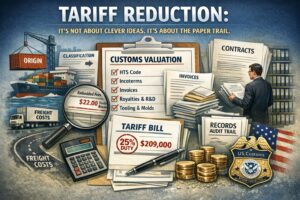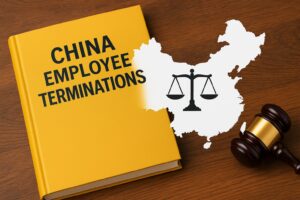When I was a wee lad of maybe ten, growing up in small town middle America, one of my best friends, Pete Collins (a/k/a/ The Big Man), somehow managed to snare some tickets for a professional wrestling event in my town. So we went to some disgusting patched together arena for the event — and what an event it was. The Sheik was there (I think). Tony Marino was there (I think). Bobo Brazil was there (of that I am almost certain). The women wearing skimpy bikinis who would come out between rounds and between matches were there (of that I am 100% certain).
The crowd was at least half of the show and huge numbers of security would constantly have to rush in to calm them. These people clearly thought it was all real. In doing a bit of background research for this post, I came across a bunch of disparaging blog comments about those “idiots who actually thought this crap was real.” I have to admit that at ten, I was a professional wrestling agnostic; I just was not really sure.
The wrestlers and the announcers would play up the wrestler’s nationalities in a way that the adult me finds repulsive. We were all encouraged to hate the Sheik because he was an Arab and because he used razor blades (I am NOT making this up) to surreptitiously cut other fighters. Wikipedia tells me that he was a Lebanese-American, born in Lansing, Michigan, which is maybe two hours from Kalamazoo. Bobo Brazil was billed as “the South American Giant,” though his Wikipedia page reveals he was actually born in Arkansas and spent most of his life in Benton Harbor, Michigan, also about two hours from Kalamazoo. I do not remember if we were to hate him as a foreigner or not.
What I also remember from that event was a match between a wrestler allegedly from Mexico who wore Mexican flag shorts and a Mexican flag jacket and a wrestler from the United States who wore US flag shorts and a US flag jacket. Again, I am NOT making this up. And if I remember correctly (which I doubt I am) about half the audience seemed to be Mexicans and Mexican-Americans and they all sat on one side of the fairly small auditorium while everyone else (Pete and me included) sat on the other side.
To make a long story short (and there is a China point to this post), the alleged Mexican fighter soundly beat the alleged US fighter and then the Mexican fighter grabbed the microphone and said something in Spanish to a raucously cheering (taunting?) side of the room with the Hispanic fans. The announcer then translated what the allegedly Mexican fighter had said: “this was not just a win for me, it was a win for all of Mexico.” Needless to say, this was met with loud booing from the non-Hispanic side of the room. Even at ten, I was uncomfortable with this.
I thought of that match this morning when I read a WhatsApp message this morning from a Mexico lawyer friend who sent me a Bloomberg article, titled U.S. and China Got Into a Trade War and Mexico Won, along with a note essentially saying that what the two of us had been predicting would happen had happened.
So everyone, let’s cue the lights and keep going with the wrestling theme. The US and China got into a big wrestling match and to the extent that match has ended, Mexico can raise its arms as THE victor. What exactly does this mean? Should we be booing or cheering?
I am writing this from Mexico right now — my law firm does a lot with Mexico and we have a ton of lawyers and staff fluent in Spanish — and I have always believed the United States should be doing more business with Mexico, not less. The US economy overall is likely to end up net negative from this trade war, but in my view, business going from China to Mexico should go into the “win” column for the United States. I was once told by someone who knows that products made in Mexico by U.S. companies get 60% of their component parts from the United States and that number is 5% for products Made in China. I just wish I could find those numbers online now.
A few months ago, in The US-China Future: Meet Vietnam, Thailand, Mexico, Malaysia, Turkey, and the Philippines, I wrote how my law firm’s manufacturing lawyers were getting a steady stream of American/European/Australian companies looking to move out of China entirely or reduce their dependence on China and I had this to say about Mexico in that post:
Mexico is very much open for business. Some companies refuse even to consider Mexico because of security fears. We see this as a huge mistake because there are plenty of great areas in Mexico that are shockingly safe.
I concluded that post with a weak rallying cry for China:
But China is not going to “just go away.”
It’s not going to become “an even larger, more powerful North Korea,” as I have heard some threaten will happen if the United States and the EU were to hang tough against China. No way. What I see is American (and European and Australian companies better recognizing what it is like to do business with China or in China. The days of so many companies having stars in their eyes about China are over and this newfound realism can only be a good thing. Will American and European and Australian companies continue to do business with China? Absolutely yes, but in lower numbers than previously. How much lower? Hard to say, but I would anticipate seeing a steady decline (maybe totally around 30%) over the next five years. China will remain a big and important country and that should not be discounted. But the big change we are seeing and expect to see accelerate is foreign companies that would in the past just check the China box are now exploring other countries as well. And this too can only be a good thing.
The Bloomberg article calls the US-China trade war a “windfall” for Mexico and though it does not mention other countries that have also benefitted, you should add Vietnam and Thailand and Taiwan the Philipines and Indonesia to that list. One of our manufacturing lawyers is in Indonesia right now with a couple Taiwanese factory owners scoping out possibilities for our clients looking to move production from China to Indonesia. Another client wrote me this morning about moving its production to Vietnam or Thailand. Many countries besides Mexico are benefitting from China’s stumbling.
According to the Bloomberg article, “U.S. imports of goods from Mexico surged 10 percent to almost $350 billion last year, the fastest growth in seven years, while growth in shipments from China slowed by about a third.” Not surprisingly, Mexico “has seen big gains in shipments to the U.S. in categories where competing Chinese goods were hit with tariffs, everything from poster board to air conditioner parts.”
The article then mentions the following examples of companies moving production from China to Mexico:
- A Chinese maker of paper cups and straws for U.S. restaurants just opened a “$4 million factory in Monterrey, Mexico, that will soon begin shipping millions of paper straws across the border.” This company set up production in Mexico to “avoid the tariffs and it says it will make up for pricier Mexican labor with lower shipping costs.
- Texas-based Taskmaster Components “has for almost 20 years imported large wheels and tires from China, and assembled them for companies making trailers and recreational vehicles, but tariffs pushed it to look at investing in a factory in Mexico. Its COO, says “A lot of people are moving production down there. Its close proximity, access to ports and an educated workforce make everything about Mexico attractive.”
It then lists out product after product, where China losses have become Mexico gains:
- “After the U.S. levied tariffs on metal ores and their byproducts, Mexico’s exports to America more than doubled, while China’s sank by a quarter.”
- “Tariffs on aluminum products helped wipe out almost $500 million in imports from China. Mexico saw a 20 percent increase in sales to the U.S.”
- “Peeled garlic cloves from China sank by almost a quarter after receiving tariffs while Mexican exports rose 54 percent.”
- “After the U.S. put 10 percent tariffs on silk yarn, one of China’s iconic exports, Mexico’s shipments to the U.S. jumped from basically nothing, just $5,500 in 2017, to $1.6 million last year.”
- “China’s imports of knitted and crocheted fabrics fell by about $3 million, almost the exact amount Mexican imports rose.”
- U.S. imports of Mexican passenger vehicles with gasoline engines jumped 17 percent while shipments from China declined.
Per the article, “Chinese labor rates and Mexico’s proximity to the U.S., especially important in the e-commerce era of quick shipping, had been chipping away at China’s dominance even before the trade tariffs.” It is just so much easier and cheaper to fly to and from Mexico (which is only one hour earlier than Seattle and the same time as Denver) than China. This matters. And just ask how many people at your company speak Spanish as compared to Chinese.
The Bloomberg article notes that the “Mexico bump” could be short-lived if the U.S. and China strike a trade deal, “reducing the impetus to move production to Mexico.” I disagree. The US-China trade war has opened people’s eyes to how difficult and inhospitable China is for foreign companies and how countries like Mexico are far more welcoming of foreign business and can offer their own distinct advantages.
The Chinese paper cup company in the Bloomberg article is quoted as already contemplating “shifting more work to Mexico” and “possibly selling to the local market and then to South America.” I am not going to tell you that operating in Latin America or selling your product here will be easy, but I will most emphatically tell you that as compared to China, it truly is. The World Bank ranks Mexico at 54 for “ease of doing business” and Chile, Colombia, Costa Rica and Peru all rank between 65 and 70.
China ranks 46, but that number is incredibly deceptive because the World Bank rankings are based on the ease of doing business for domestic companies so it fails to account for China’s rampant discrimination against foreign companies.. Were these ease of use rankings based on the ease of foreign companies doing business in each country, I would expect China to fall out of the top 100, with the rankings of the Latin American countries mentioned above barely impacted. Were these ease of use rankings to include all the industries in which foreign companies are completely banned from operating in China, I would expect China to fall even further.
What are you seeing out there?
4-5-2019 UPDATE: Today’s New York Times has a similar article: The trade war is nearing a possible truce, but global companies are nevertheless moving to reduce their dependence on Chinese factories to make the world’s goods. This article’s subtitle is “The trade war is nearing a possible truce, but global companies are nevertheless moving to reduce their dependence on Chinese factories to make the world’s goods.” In other words, the trade war may end but the exodus of foreign companies from China will not.
No matter what “deal Washington and Beijing reach over the trade war, companies are rethinking their reliance on China and they are beginning to shift their supply chains away from China, just as some Trump administration officials had wanted.” The article then provides examples of companies doing just that:
Now companies in a number of industries are reducing their exposure to China. GoPro, the mobile camera maker, and Universal Electronics, which makes sensors and remote controls, are shifting some work to Mexico. Hasbro is moving its toy making to the United States, Mexico, Vietnam and India. Aten International, a Taiwanese computer equipment company, brought work back to Taiwan. Danfoss, a Danish conglomerate, is changing the production of heating and hydraulic equipment to the United States.
This “decoupling” from China is still in its early stages, but a UBS “survey of chief financial officers at export-oriented manufacturers in China” late last year found that a third had moved at least some production out of China in 2018 and another third intended to do so this year.
The die has been cast.

























